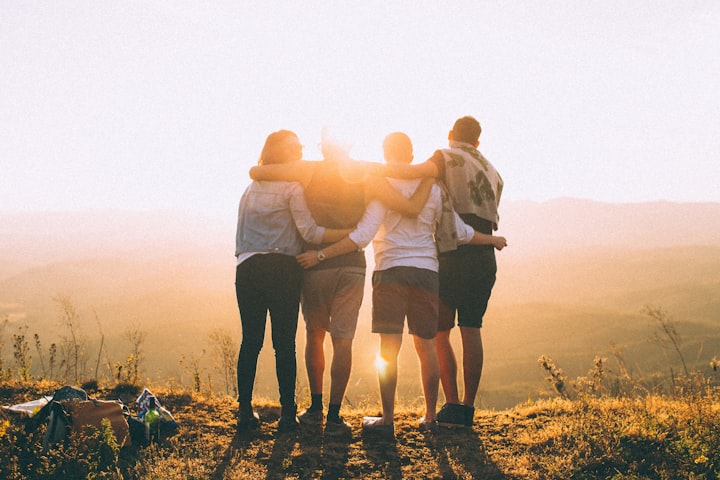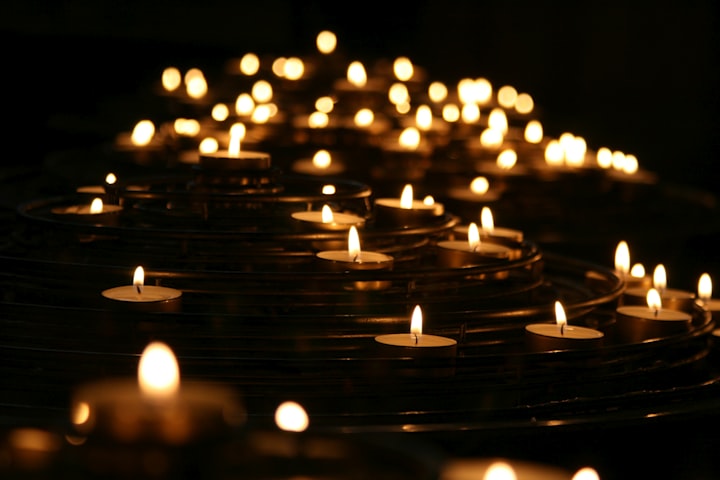
*This article was not written to diagnose a mental health condition. If you suspect that you have Survivor’s Guilt, please seek a medical professional.*
Survivor’s Guilt is a form of Post Traumatic Stress Disorder (PTSD) among individuals that have survived a life-threatening situation that others may not have. Survivor’s Guilt is commonly seen among Holocaust survivors, war veterans, organ transplant recipients, crash survivors, and those who have lived through natural disasters.
Although not talked about often, cancer survivors are known to experience Survivor’s Guilt as well.
Symptoms of Survivor’s Guilt vary amongst individuals, but commonly include:
- Flashbacks
- Irritability
- Difficulty Sleeping
- Feeling Numb
- Lack of Motivation
- Helplessness
- Intense Feeling of Fear
- Migraines
- Suicidal Thoughts
Although it is not logical for an individual to feel responsible for another individual’s fate, it is often a hard feeling to shake. Some individuals happen to be more prone to this feeling, and that can contribute to many survivor’s intense feelings of guilt.
An often significant question posed by those with Survivor’s Guilt is “why?”. This question of “why?” can also lead to the question of “why me?”. So many survivors that experience this guilt struggle to understand why they survived and others who faced the same as them, did not. Additionally, as someone that has survived a traumatic event feels appreciation and relief for their survival, they will also simultaneously be plagued with guilt and shame for having those feelings of appreciation when others did not survive.

“Why me?” is a question that has lingered in my head daily.
In 2007, at the age of 8 years old, I was diagnosed with cancer. Although I have survived, the guilt of surviving while those around me have not, has followed me throughout my life.
I had made my best friend while going through chemotherapy treatment. We became so close because we were able to talk about what we were going through and relate to each other. During treatment, we were inseparable.
One day, my friend came to me with some bad news. Their cancer was not shrinking and there was not much more doctors could do to help them. At that moment, I was told by the one true friend I had made while in the hospital, that their life would be cut short. Two years later, they passed away and I was devastated.
That moment was the beginning of the guilt that has trailed me and continues to trail me to this day.
-------------------
I know that there are others out there that are facing this same, daily struggle. I want to offer someplace for them to go, to seek some tips, and even a friendly stranger that understands the struggles they’re facing.
While I cannot completely escape this guilt, I’ve got some coping mechanisms that help me relieve some of these daily feelings and I want to share them with you.
Accept What You Are Feeling

I’ve noticed that if I hide these feelings of guilt, the guilt will pile up and become too overwhelming to bear. Accepting these guilty feelings, whether rational or irrational, is important. Guilt is a natural feeling and like a feeling; such as sadness, needs to be acknowledged, accepted, and processed.
Know That You Are Not Alone

Survivor’s Guilt is more common than one may think. Finding a support group, or a friend to connect and share similar feelings with, can help you understand that you are not isolated in your struggles. Check around in your community to see if there are any support groups. If not, reach out to your close friends to let them know how you're feeling.
Grieve Those Who Have Died

Oftentimes, those who have died are not individuals you knew personally. However, the guilt may still hit you. This does not mean that you cannot take the time to mourn those that have died in a way that is both meaningful and personal to you. Hold a candlelight vigil, sit outside in nature, or write in your journal. Releasing your feelings of grievance in a meaningful way will help you cope with the sadness that often coincides with feelings of guilt.
Do Something With Your Guilt

Whether your guilt is rational or irrational, you can use that feeling to help others. What you do to help others may come out of what you have learned from your personal experiences. You can use your guilt to educate others about the guilt they may be feeling, or raise awareness of causes such as; heart disease, cancer, driving under the influence, substance abuse; among many more.
Embrace Life

Yes, I know this sounds cheesy, but embracing life is so important! It’s vital that you enjoy the life you have been given. I know this can be a difficult feat among the feelings of guilt, but it can also help you understand the value of your life.
I tell myself daily that “I woke up, and I’m alive. Now let’s take on this beautiful day.”
Another helpful tip for embracing life is to tell yourself that you are here because you were meant to achieve great things. Use that motivation to help you achieve something that you are passionate about. Use that motivation to help others. Use that motivation to spread kindness, smiles, love, and empathy.
Talk To A Counselor

If you are still struggling with Survivor’s Guilt, it may be time to seek some professional help. I understand that there is a stigma about receiving help from a counselor, but your mental health is vital. I recommend looking for a counselor in your area that has experience with trauma, as they would be a good fit for an individual struggling with Survivor’s Guilt.
-------------------
Survivor’s Guilt is not easy to manage and can often disrupt your daily life. These pieces of advice do not completely erase the feelings of guilt, however, they do make living day-to-day more manageable. If you’re reading this and you’re struggling with Survivor’s Guilt, I hope you can utilize some of these tips to find relief, and embrace life!
Source:
Raab, D. (2018). What Everybody Should Know About Survivor’s Guilt. Psychology Today.
About the Creator
Elisa Toy
Nature Lover | Activist | Cancer Survivor | She/Her
I am a queer writer from Arizona sharing my journey and thoughts with you! My writing focuses on my mental health, love of nature, and everything in between!






Comments
There are no comments for this story
Be the first to respond and start the conversation.